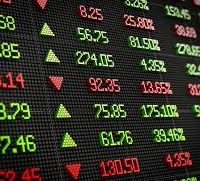The stock market has become a regular part of the news cycle. Whether that is because the public wanted it to become so or because the media saw another way to entice audiences is debatable. What is not debatable is that news media and Wall Street firms tend to create huge amounts of anxiety for the general public when reporting on the ups and downs of the stock market. Daily newscasts create euphoria when the stock market is up, and they drive the general public into despair when it’s down. And this serves no valuable purpose regarding everyday folks seeking to make steady investments to save for retirement or to build a college fund for younger family members.
If you invest in real estate, a small business, or even collectible artwork, no one is pricing the value of your investment every five seconds, or telling you the sky is falling three times a week. Why is that the case with the media reporting on the stock market?
All of this hype and panic creates stress across the board for people with retirement plans, 401(k) and IRA accounts, and folks concerned about the status of our economy. It’s one thing when there is a major recession or national catastrophe and the impact is nationwide or worldwide. But, to have our sense of security and thus our emotions manipulated by the media and our financial advisors on a daily basis creates unnecessary and unwarranted stress.
The net effect is that far too many people are now steering clear of the stock market and other Wall Street offerings to avoid the stress and uncertainty that they encounter. At least with a casino, all the highs and lows of that experience are left behind the minute you walk out the door.
Is there a way to deal with stock investing without all the emotional stress stimulated by ups and downs of stock prices and the panic and glee of media reporting? I believe that the answer is yes, as I’ve written in my book Customize Wall Street.
Some of the messages I deliver in my book are intentionally designed to help people experience reduced stress and anxiety about their stock and mutual fund investments.
Firstly, I feel that people should understand the difference between what they can and can’t control in the world of finance. We can control which stocks or mutual funds we choose to buy. We can control how much money we invest in such securities. We can control when we buy our stocks and when we sell them. We can control whether we put our money in other types of investments like real estate, annuities, or remodeling our home. But, you and I cannot control stock prices or changes in the overall economy.
Knowing what we can and cannot control allows us to feel better about decisions we’re making. That may not eliminate stress, but it should help to reduce it.
Secondly, no matter what type of investment you choose, it should relate to a financial goal. If you have a financial goal in mind (such as building a retirement fund), then it is wise to assess whether the stock or mutual fund you wish to buy will advance the achievement of that goal.
If one buys a certain stock because someone’s friend made money with that stock, does that necessarily mean it will give you the same result? It might have been a gamble by that other individual and just turned out lucky. The rise in the investment may have topped out. But, if you pick a stock that is based on good research and seems to support the financial goals you have set, you would worry less about owning that stock.
Thirdly, I feel that people will encounter less stress if they choose stocks that tend to have greater price stability. Stocks that constantly increase and decrease in price over a short period of time are more likely to give shareholders greater anxiety than stocks that do not constantly fluctuate. One category of stocks that show greater price stability are stocks that pay regular dividends. Dividends constitute the cash flow paid out to shareholders. Those stocks with track records of steady dividend payments tend to be more stable than those with sporadic dividends or no dividends at all.
While no investment is a sure thing, careful research and a bit more conservative approach to investing can go a long way to mitigate the stress we tend to feel when we invest.








